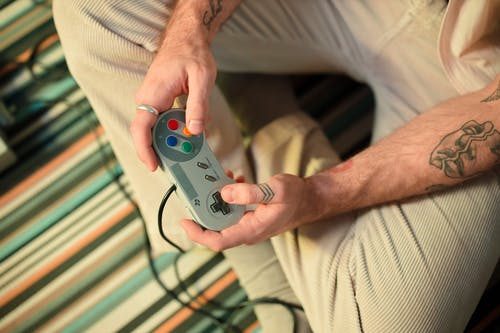Researchers are seeking seniors to study the mental health benefits of video gaming.
Despite all the talk about video games being bad for one’s health, study researchers are now examining its therapeutic benefits. The team is seeking to enroll more than 200 study participants to test their theory that video gaming can improve mental health outcomes. The latest trial follows a smaller study that was published this May in Translational Psychiatry.
The aim of the current study is to find out whether seniors living with depression would benefit from the ability to play video games, and the population includes adults between the ages of 66 to 75 who have been diagnosed with depression and attention issues. The focus is to determine if gaming has brain-enhancing benefits, which expands upon the original study of 34 adults ages 45 to 75. Those who participated were asked to play a game at home for 20 to 25 minutes per day, at least five times per week, for one month. Changes in brain functioning was then measured with an MRI.
The results of the May study showed nearly 75% of participants had improvement in cognitive functioning. “Participants also reported a significant reduction in depressive symptoms,” the authors wrote. “The easily disseminated video-game intervention could have significant impact on a substantial subset of middle-aged and older adults,” they added.

Patricia Areán, professor of psychiatry and behavioral sciences at the University of Washington School of Medicine, who is leading the current research, said of the findings, “This technology-based therapy shows promising cognitive benefits across a number of patient populations, and this trial will give us more insight on their potential use in adults with depression.”
Individuals who live with depression in later life often report problems with attention and concentration. They also tend to not be able to focus on achieving personal goals. At least “one-third of individuals treated with antidepressant medications or psychotherapy are not helped” by these traditional treatment options. In the May study, the researchers found that this was the case despite the ability of these medications to improvement mood.
A small 2018 study, which included a dozen participants, also found that video gaming calmed individuals with schizophrenia. The research team, from King’s College London’s Institute of Psychiatry, Psychology and Neuroscience and the University of Roehampton, examined the benefits of gaming in patients who do not respond to medication. The lack of response is due to a more active auditory cortex, making these individuals more sensitive to auditory hallucinations. All twelve patients experienced disturbing and threatening hallucinations on a daily basis.
Dr Natasza Orlov, from King’s College London, said, “The patients know when the voices are about to start – they can feel it, so we want them to immediately put this aid into effect to lessen them, or stop the voices completely.”
Professor Sukhi Shergill from King’s, and a consultant psychiatrist at the South London and Maudsley NHS Foundation Trust, said of the findings, “While this is preliminary data, it’s particularly promising that patients were able to control their brain activity even without the MRI scanning – suggesting that this may be a strategy that people, who have followed the MRI neuro-feedback training protocol, can benefit from at home.”


Join the conversation!